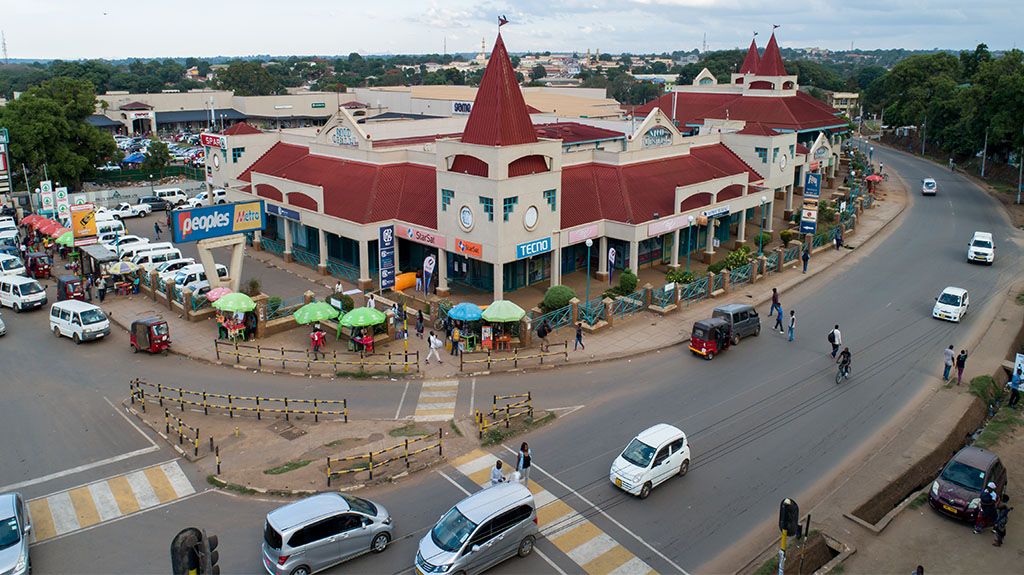
Nestled in the heart of southeastern Africa, the Republic of Malawi is a land of breathtaking natural beauty, diverse cultures, and a burgeoning economy brimming with promise. At the center of this economic renaissance lies Lilongwe, the capital city, which serves as a dynamic hub of commerce, innovation, and opportunity.
**A Tapestry of Riches: Malawi's Economic Landscape**
Malawi's economy, although historically reliant on agriculture, is diversifying rapidly, propelled by a wave of entrepreneurship, investment, and government initiatives aimed at fostering sustainable growth. The country's strategic location, abundant natural resources, and favorable business climate have positioned it as a prime destination for investors seeking untapped markets and promising returns.
Agriculture remains the backbone of Malawi's economy, with the majority of the population engaged in small-scale farming. Cash crops such as tobacco, tea, and sugarcane are key export commodities, contributing significantly to foreign exchange earnings. However, efforts to promote value addition and agro-processing are unlocking new opportunities for growth and employment generation.
In addition to agriculture, Malawi boasts a burgeoning services sector, driven by robust telecommunications, banking, and tourism industries. The country's pristine lakes, lush national parks, and vibrant cultural heritage attract a steady stream of visitors eager to explore its natural wonders and experience its warm hospitality.
**Lilongwe: A Beacon of Progress**
At the heart of Malawi's economic transformation stands Lilongwe, a city teeming with energy, ambition, and boundless potential. Established as the capital in 1975, Lilongwe has evolved into a bustling metropolis, attracting businesses, investors, and skilled professionals from across the region and beyond.
Lilongwe's strategic location, at the crossroads of major transportation routes linking southern and eastern Africa, positions it as a key logistics and trade hub. The city's modern infrastructure, including an international airport, seaport facilities on Lake Malawi, and well-maintained road networks, facilitates the seamless flow of goods and services, driving economic activity and enhancing regional connectivity.
Moreover, Lilongwe's vibrant business environment, characterized by a supportive regulatory framework, access to financing, and a skilled workforce, has catalyzed the growth of diverse industries, including manufacturing, finance, and technology. The city's Special Economic Zone (SEZ) offers incentives and facilities to attract investment and promote export-oriented production, further bolstering its appeal to investors seeking a competitive edge.
**Investment Opportunities and Challenges**
Despite its considerable progress, Malawi and Lilongwe face numerous challenges on the path to sustainable development. Limited access to electricity, inadequate infrastructure, and a skilled labor shortage pose obstacles to business expansion and productivity enhancement. Moreover, the country's heavy reliance on rain-fed agriculture leaves it vulnerable to climate change and environmental degradation, underscoring the need for diversified economic growth strategies and resilience-building measures.
However, amidst these challenges lie abundant opportunities for investment and innovation. Malawi's youthful population, coupled with a growing middle class and increasing urbanization rates, presents a burgeoning consumer market ripe for exploration. Strategic sectors such as renewable energy, agribusiness, and information technology offer avenues for profitable investment and long-term socio-economic impact.
**Charting a Path Forward**
As Malawi and Lilongwe navigate the complexities of economic development, collaboration and partnership will be paramount. Governments, businesses, civil society, and development partners must work together to address structural barriers, promote inclusive growth, and unlock the full potential of the country's resources and people.
Through strategic investments in infrastructure, education, and technology, Malawi and Lilongwe can lay the foundation for a prosperous and resilient future, where opportunity abounds and prosperity is shared by all. With determination, innovation, and a commitment to sustainable development, the Republic of Malawi and its vibrant capital city of Lilongwe are poised to emerge as shining beacons of progress on the African continent.